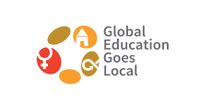Global Education Goes Local: Difference between revisions
From Future Worlds Center Wiki
Jump to navigationJump to search
(Created page with " {{Project_Contract |image=LogoGEGL.jpg |project_title=Global Education Goes Local |acronym=GEGL |donor= European Commission |lead_partner=Creating Eff...") |
No edit summary |
||
| Line 7: | Line 7: | ||
|acronym=GEGL | |acronym=GEGL | ||
|donor= European Commission | |donor= European Commission | ||
|lead_partner=Creating Effective Grassroots Alternatives Foundation | |lead_partner=Creating Effective Grassroots Alternatives Foundation (C.E.G.A. Foundation) | ||
|call= | |call= | ||
|link_call= | |link_call= | ||
|agreement_number= | |agreement_number=CSO-LA/2017/388- 120 | ||
|partners= | |partners=Future Worlds Centre/FWC, Cyprus | ||
Global Citizens’ Academy/GCA, Lithuania | |||
Institute for African Studies/IAS, Slovenia | |||
Cazalla Intercultural, Spain | |||
Suedwind Steiermark, Austria | |||
|cost=€1,479,126.00 | |cost=€1,479,126.00 | ||
|grant=€1,331,213.00 | |grant=€1,331,213.00 | ||
|cost_fwc= | |cost_fwc= | ||
|grant_fwc= | |grant_fwc= | ||
|start_day= | |start_day=1 | ||
|start_month=11 | |start_month=11 | ||
|start_year=2017 | |start_year=2017 | ||
|end_day= | |end_day=31 | ||
|end_month=10 | |end_month=10 | ||
|end_year=2020 | |end_year=2020 | ||
|description= | |description= | ||
|main_page=[[ | |main_page=[[Global Education Goes Local]] | ||
|website= | |website= | ||
|about= | |about= | ||
|title_header=Global Education Goes Local | |title_header=Global Education Goes Local: Description | ||
|content_header= | |content_header='''The Global Education Goes Local Project''' is a three years international project supported by the Europe Aid/151103/DH/ACT/Multi of the European Commission. | ||
| | |overall_objective=Overall objective of the project is to foster commitment of European citizens to take an active role towards meeting the challenges of the interdependent world we live in, based on awareness and critical understanding of their two-way relations with the issues of global development. | ||
|specific_objectives= | |specific_objectives= | ||
*To foster the understanding of the interconnectedness between the developing | |||
countries and the European Union on the successful implementation of the SDGs | |||
with focus on goals 5, 11 and 12 among European citizens living in small localities; | |||
*To increase the awareness of citizens in small localities, and especially young people, | |||
on the local and global dimensions of the SDGs with focus on goals 5, 11 and 12; | |||
*To generate and promote new approaches and methodologies of engaging young | |||
people in global issues, particularly by utilising pop culture; | |||
*To build capacity of actors in small localities to run quality global learning process | |||
with local communities and especially young people. | |||
|title_footer=Expected Results | |title_footer=Expected Results | ||
|content_footer= | |content_footer= | ||
Revision as of 04:27, 25 April 2018
Global Education Goes Local: Description
The Global Education Goes Local Project is a three years international project supported by the Europe Aid/151103/DH/ACT/Multi of the European Commission. |
|
Specific objective(s)
countries and the European Union on the successful implementation of the SDGs with focus on goals 5, 11 and 12 among European citizens living in small localities;
on the local and global dimensions of the SDGs with focus on goals 5, 11 and 12;
people in global issues, particularly by utilising pop culture;
|
